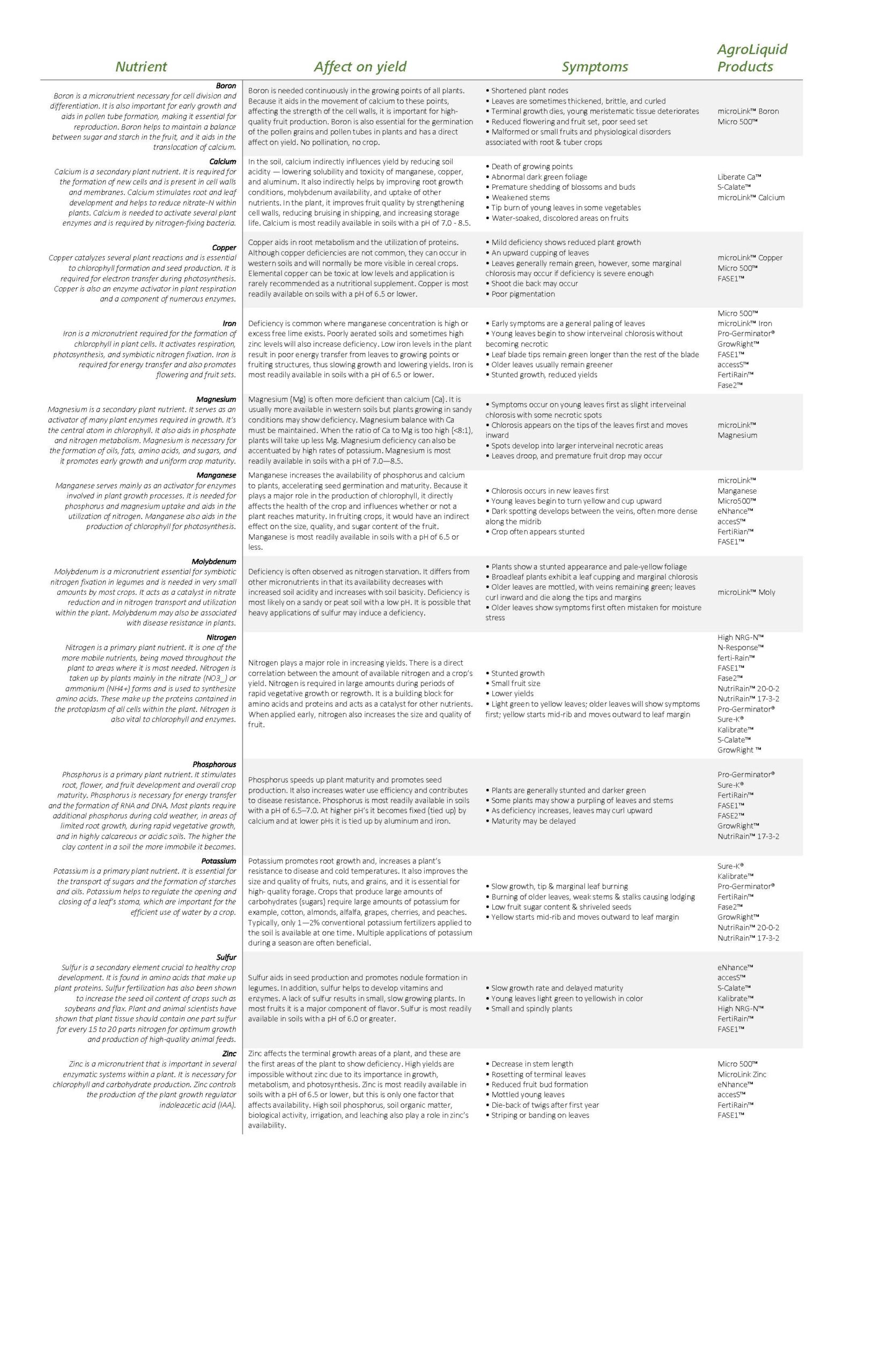
Just like you can sometimes see signals of stress in people – cracking their knuckles, sweating, biting their nails – plants also show obvious signs of stress. What can growers do to spot these signs, and how can they help crops improve?
Foundation of crop health
Plant health starts with proper nutrition, and nutrients like nitrogen, phosphorus, potassium, calcium, and micronutrients play important roles in plant growth, development, and stress resilience. A well-balanced nutrient program makes sure plants have the resources they need to survive and thrive, even when faced with challenging circumstances.
Even though growers try to do everything correctly when tending to a crop, events out of their control like too much rain, too little rain, pests, invasive weeds, or other factors can always cause stress. Since environmental factors change year to year, growers have to be good at spotting and solving problems.
Visual indicators of plant stress
Recognizing the signs of plant stress is helpful for immediate intervention. Common visual cues and their possible underlying causes include:
| Stress Sign | Cause |
| Stunted growth | Nitrogen deficiency |
| Yellowing leaves | Nitrogen or sulfur deficiency |
| Purpling leaves | Phosphorus deficiency |
| Browning leaf edges | Potassium deficiency |
| Stunted growth | Zinc or other micronutrient deficiencies |
| Withered | Calcium deficiency |
| Lower, older leaves look chlorotic between their leaf veins |
Of course, just looking at a table to identify the problem isn’t enough evidence to actually determine the real problem.
Tools to identify plant stressors
During the growing season, the best way to check your plants is to perform a tissue test analysis.
To get accurate results, collect samples at the right growth stages, from the correct parts of the plant, and from about 20-30 plants in each field. Experts suggest using paper bags instead of plastic bags to avoid mildew issues, and it’s still important to help them retain their original moisture levels before testing.
By tracking tissue test results over time, you can identify trends and make informed decisions to help crop nutrition and overall plant health. For more on this, read: Tissue Testing: Are the Benefits Worth the Cost?
Just like a blood test on a person or a diagnostic test on a machine – a tissue test can help you make a definitive diagnosis.
It’s also important to prepare the soil before you even plant. To take a soil test, take a sample into a testing center. A soil test will tell you the nutrient levels, pH, base saturations, organic matter, and cation-exchange capacity in the soil. This information and a thorough analysis will show you where your soil is deficient in nutrients. For more information on soil testing, go Back 2 Basics.
AgroLiquid: plant stress management
AgroLiquid offers plant nutrition products designed to support crop health and resilience throughout the entire growing season. Here’s how we can help:
- Balanced nutrition: AgroLiquid fertilizers provide a balanced blend of nutrients to support growth and development.
- Stress mitigation: Our products help plants cope with environmental stresses like drought, heat, and cold.
- Root health: AgroLiquid products promote strong root development, improving nutrient uptake and water utilization.
For a complete list and accompanying AgroLiquid products, see this table:
Once you’re able to spot the stress, it’s not too late! Just like people can calm down after a tense situation…you can definitely make changes to improve your crop.


